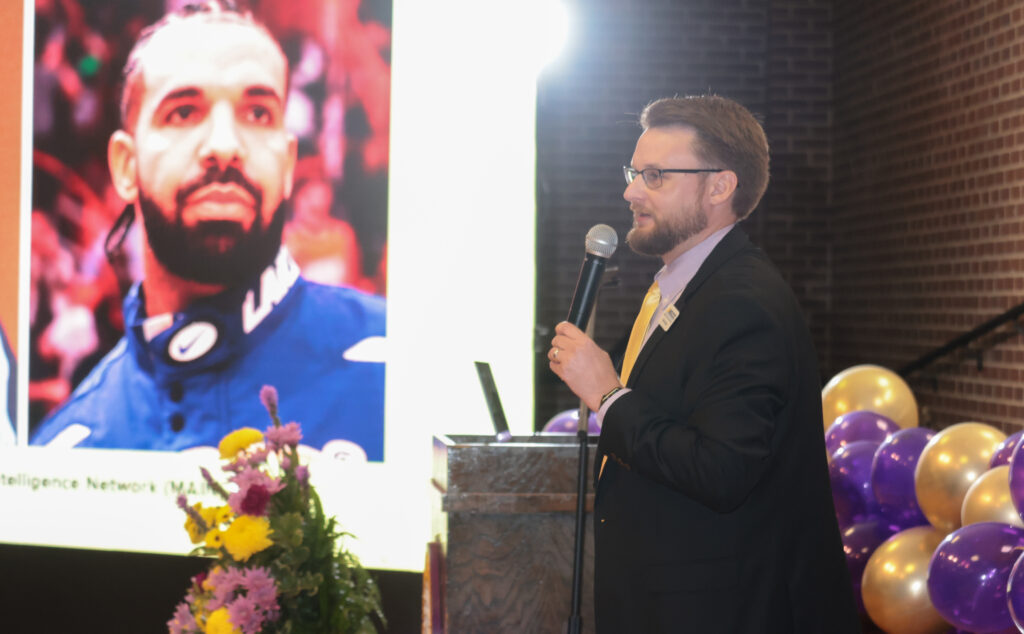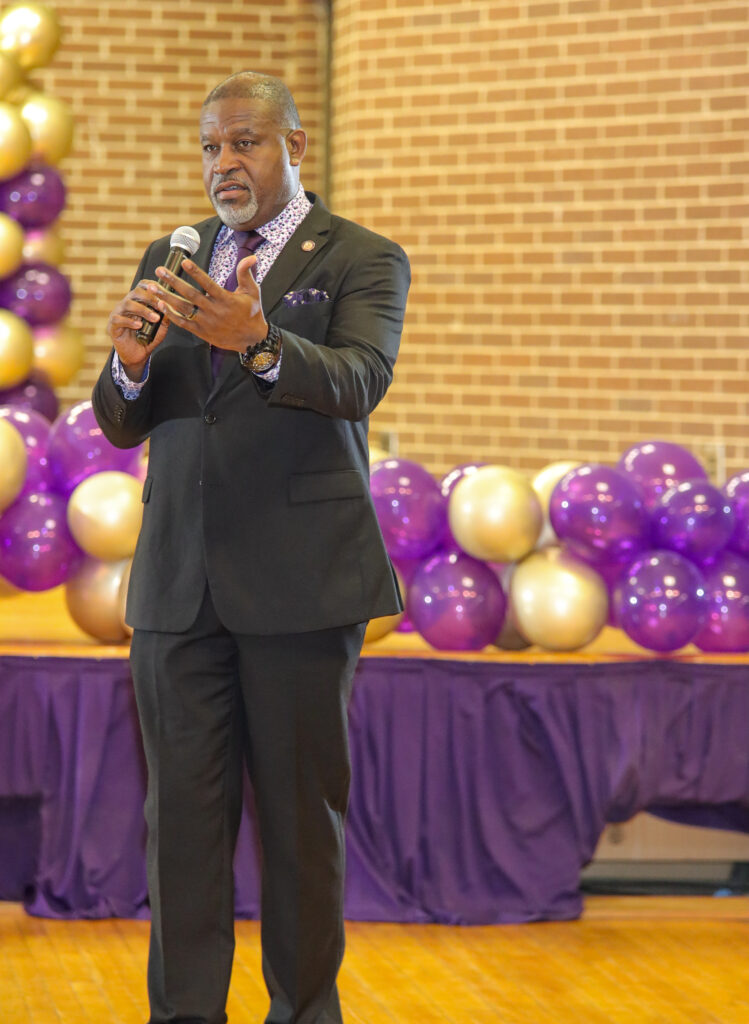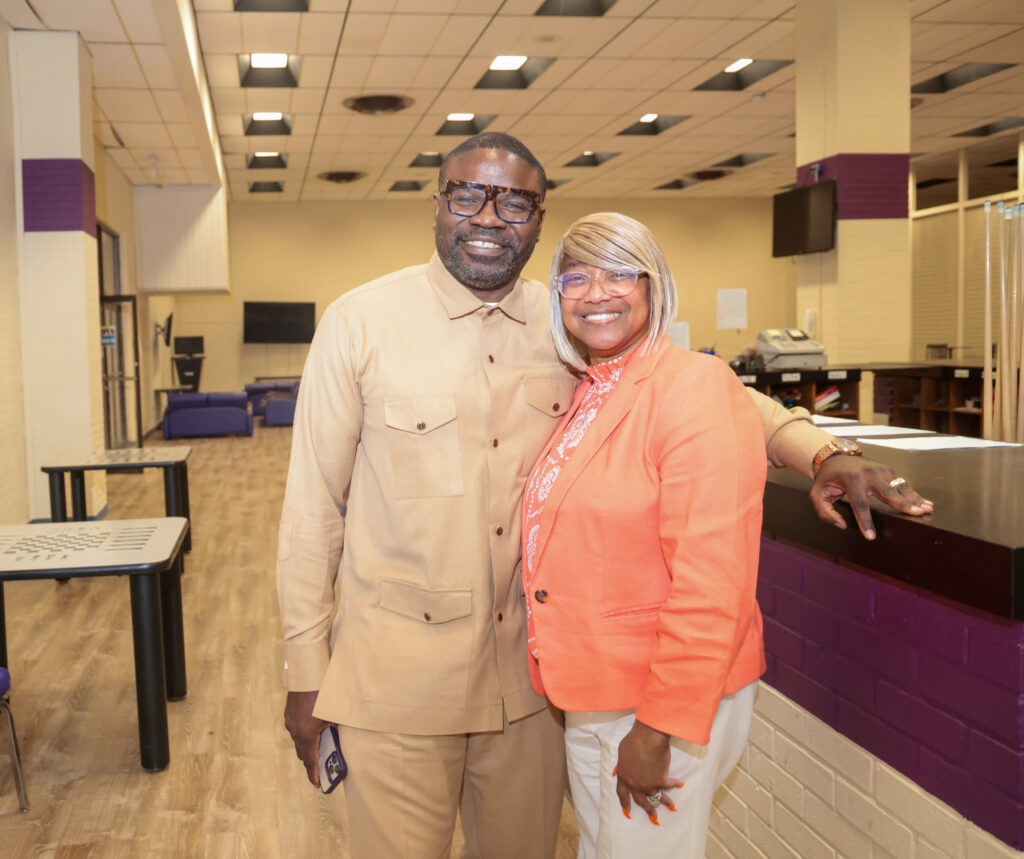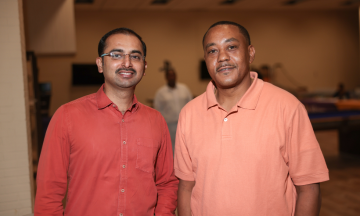Alcorn State University opened its Fall Faculty and Staff Institute with a focus on artificial intelligence (AI) and institutional priorities. The event featured a State of the University address by President Tracy M. Cook, Ed.D. and a keynote speech on AI’s impact on education.
Dr. Kollin Napier, director of the Mississippi Artificial Intelligence Network (MAIN) at Mississippi Gulf Coast Community College, delivered the keynote address titled “How Generative AI is Shaping our Future.” Napier highlighted the importance of AI education and training for Mississippi’s workforce and economic development.

Dr. Kollin Napier, director of MAIN, shares how AI has revolutionized education.
We want to keep seeing Mississippi thrive and get those investments,” Napier stated. He announced that Intel is providing free AI curriculum to educational partners in Mississippi, offering a blueprint for new programs, courses, and degrees.
Napier revealed plans to establish AI labs across Mississippi’s higher education institutions, including Alcorn State. These labs will serve faculty, staff, and students, providing a foundation for future AI-focused programs.
He also shared statistics on AI education efforts in the state, including over “1,200 K-12 teachers enrolled in AI courses and 3,500 cumulative hours of AI education provided to K-12 educators alone.”

Dr. Tracy M. Cook, president of Alcorn State University, delivers State of the University address.
In his State of the University address, President Cook outlined his vision for Alcorn, emphasizing building capacity, operating with efficiency, and improving customer service. He announced a 3% pay raise for faculty and staff.
“I appreciate the Finance office’s hard work in making this possible,” he said.
He stressed the importance of accountability, efficiency, and customer service across all university departments. He urged staff to complete tasks promptly, improve communication, and provide better service to students and external campus partners by treating them like VIP.
“We’re going to hold people accountable,” Cook said. He emphasized the need for cross-training staff and thinking outside the box to improve university operations.
He highlighted the changing landscape of university funding, noting that student tuition now accounts for 70% of the university’s budget, compared to 30% from state appropriations.

Faculty and staff members show excitement for the new academic year.
This shift shows the critical importance of student recruitment and retention.
He called on all university employees to participate in recruitment efforts, stating, “When students step on this campus, it only takes one bad experience. We are in a world where people have choices.”
President Cook addressed the importance of mental health and work-life balance, encouraging staff to prioritize self-care and family time. He shared personal anecdotes about leadership and accountability from his experiences as a coach, emphasizing the value of commitment and follow-through.
He concluded by urging departments to break down silos and collaborate more effectively.
“Be consistent and stop working in silos in your particular unit and begin reaching out to the various units to collaborate,” he stated.




